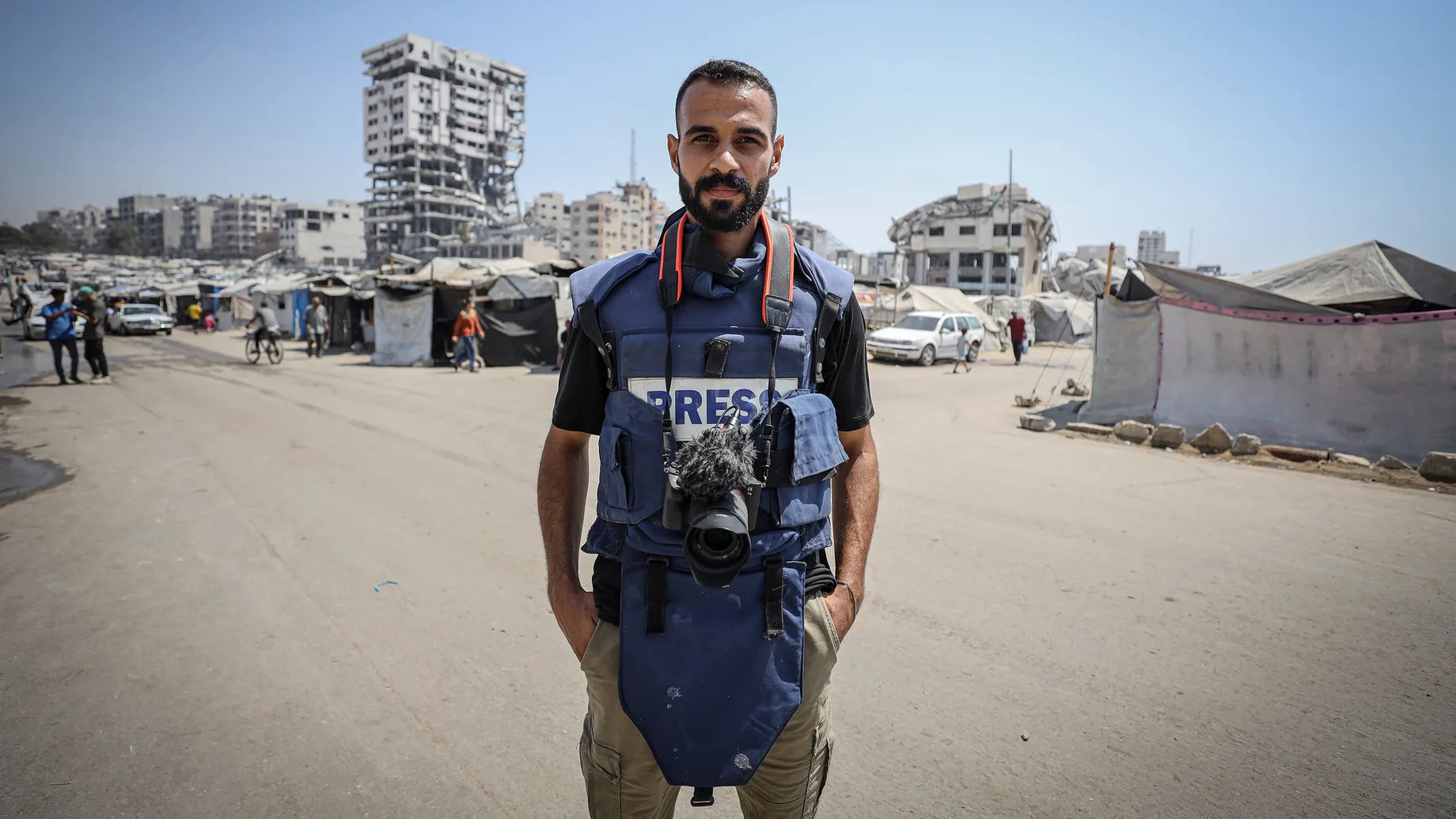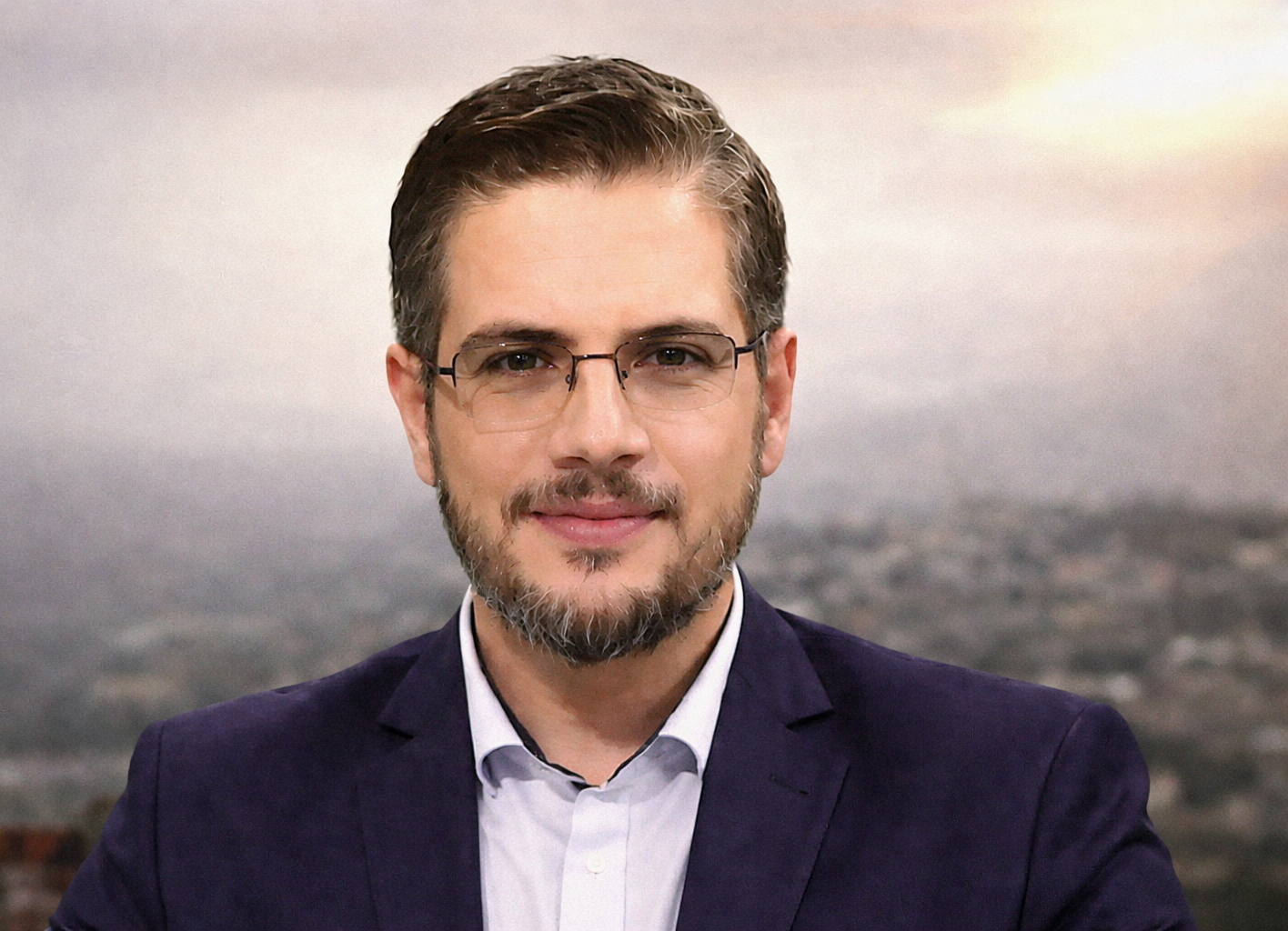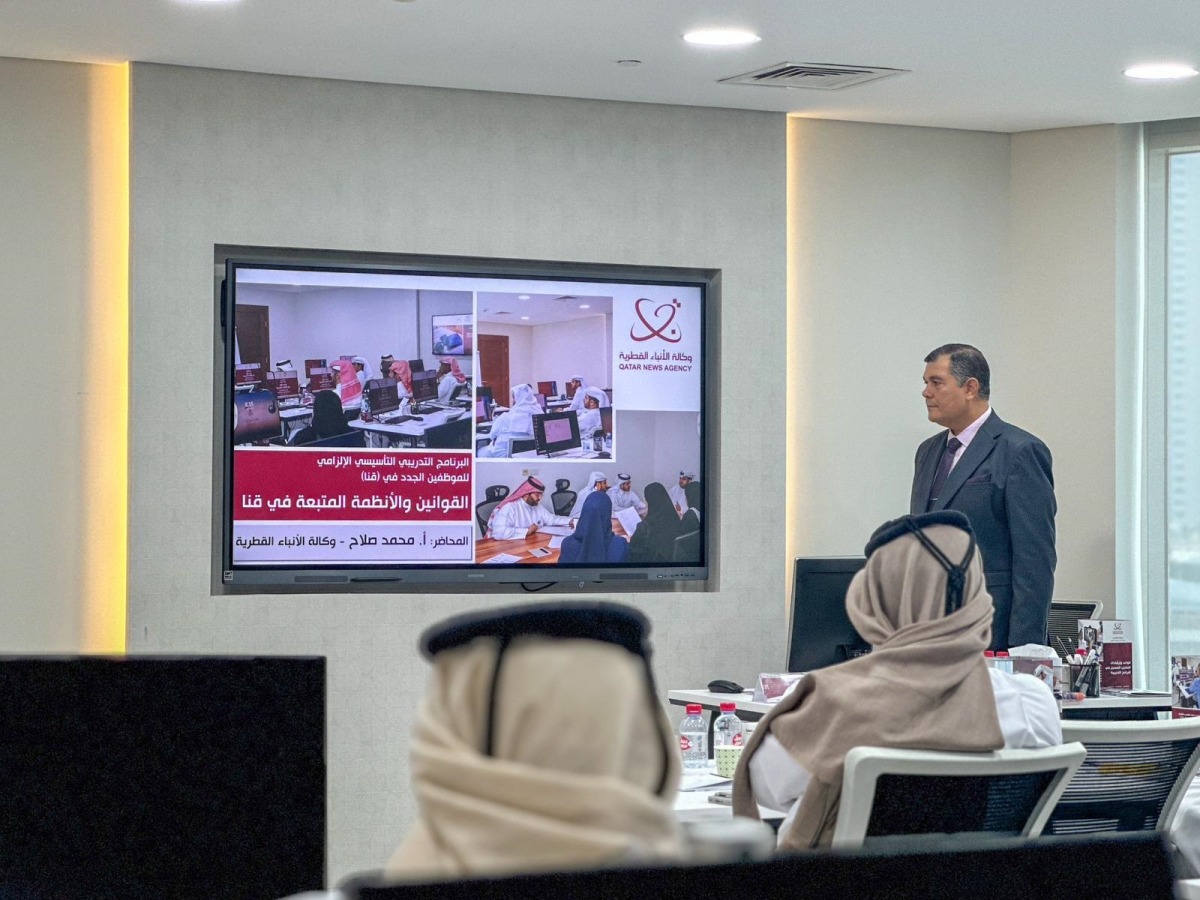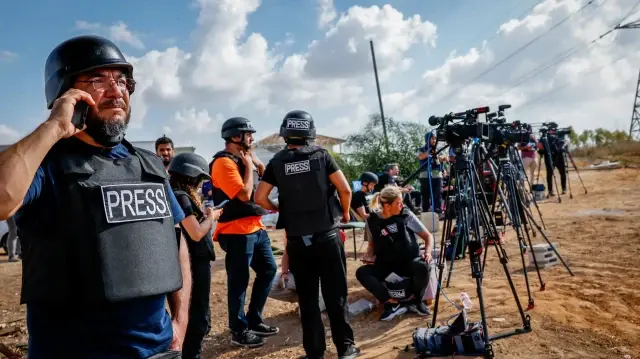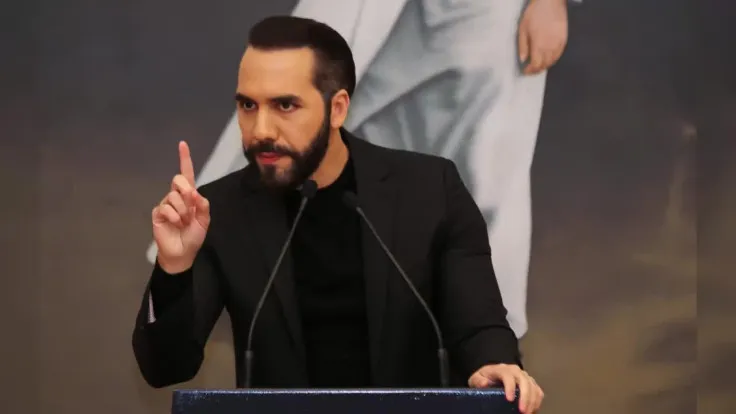
Female Journalists in El Salvador Face Escalating Gendered Harassment Under Bukele
August 30, 2025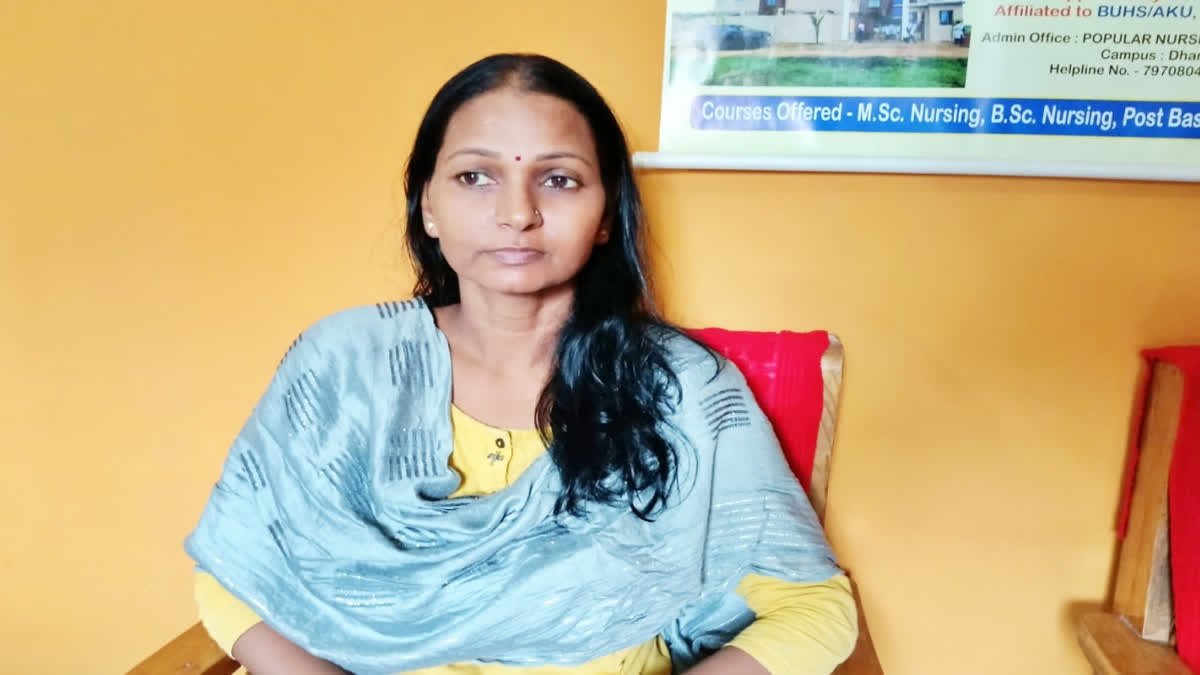
Partial Justice in Siwan: Three Convicted, Three Acquitted in Rajdev Ranjan Murder Case
August 30, 2025August 30, 2025 – Palestine –
A photo of Gazan photographer Anas Fteiha at work—capturing civilians waiting for food at a humanitarian distribution site—ignited uproar in Germany. Published by outlets including Bild and Süddeutsche Zeitung in August 2025, the image was accused of being “staged” or used as Hamas propaganda. However, a careful analysis by the fact-checking site Snopes found that the scene was genuine: the subjects were indeed receiving aid from a verified charity, as omitted in the initial reports. Despite this refutation, the initial allegations placed Fteiha in harm’s way, forcing him to fear for his safety.
This episode highlights a concerning trend: media misinformation can have deadly consequences for frontline journalists. The Guardian recently criticized the German media’s role in enabling violence against Palestinian reporters by delegitimizing their work. Some outlets have helped justify Israeli targeting of press personnel, thereby raising questions about media responsibility in conflict zones.
A contentious photo published in Germany showing Gaza photojournalist Anas Fteiha photographing civilians waiting for food was misrepresented by outlets such as Bild and Süddeutsche Zeitung as being “staged” propaganda. The image featured Fteiha capturing a real food distribution scene, but the publications failed to mention a visible banner indicating a charitable kitchen and the identifiable vests worn by aid workers—factors confirmed via multi-angle review. Fact‑checkers at Snopes concluded that the subjects were genuinely waiting for food, not posing for staged media content.
The fallout from these false claims has put Fteiha in danger, forcing him into hiding as the smear campaign continues to grow, primarily led by tabloids and amplified across social media.
This incident reflects a broader issue of media complicity in conflict‑driven disinformation. A critical analysis published in The Guardian denounces German media—including Bild—for systematically delegitimizing Palestinian journalists, feeding narratives that portray them as militants or propagandists. Such coverage, the article argues, has helped rationalize the targeting of journalists and contributed to escalating violence and war crimes.
By weaponizing visual journalism and context, misinformation threatens not just careers but lives. Anas Fteiha’s case is a stark warning: shortcuts in reporting and sensationalism can become catalysts for violence against those trying to document suffering and truth in the world’s most dangerous zones.
Reference –

